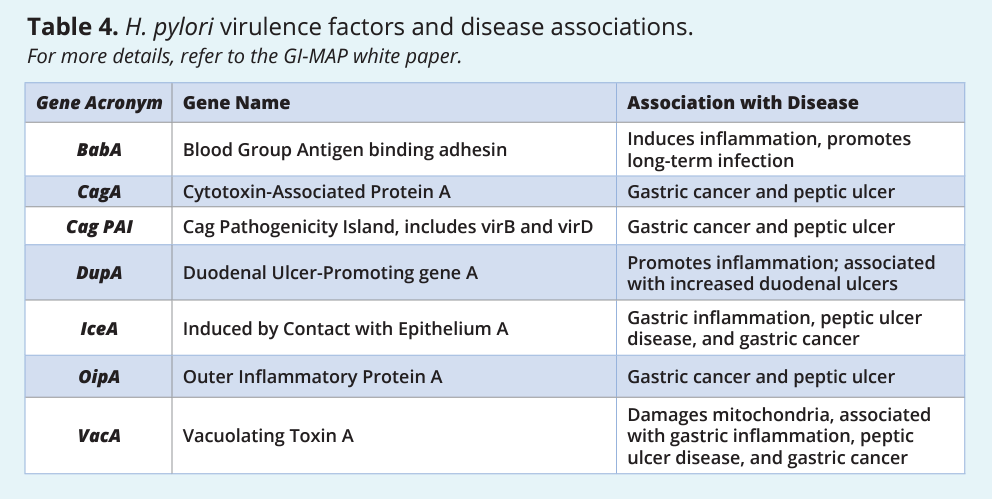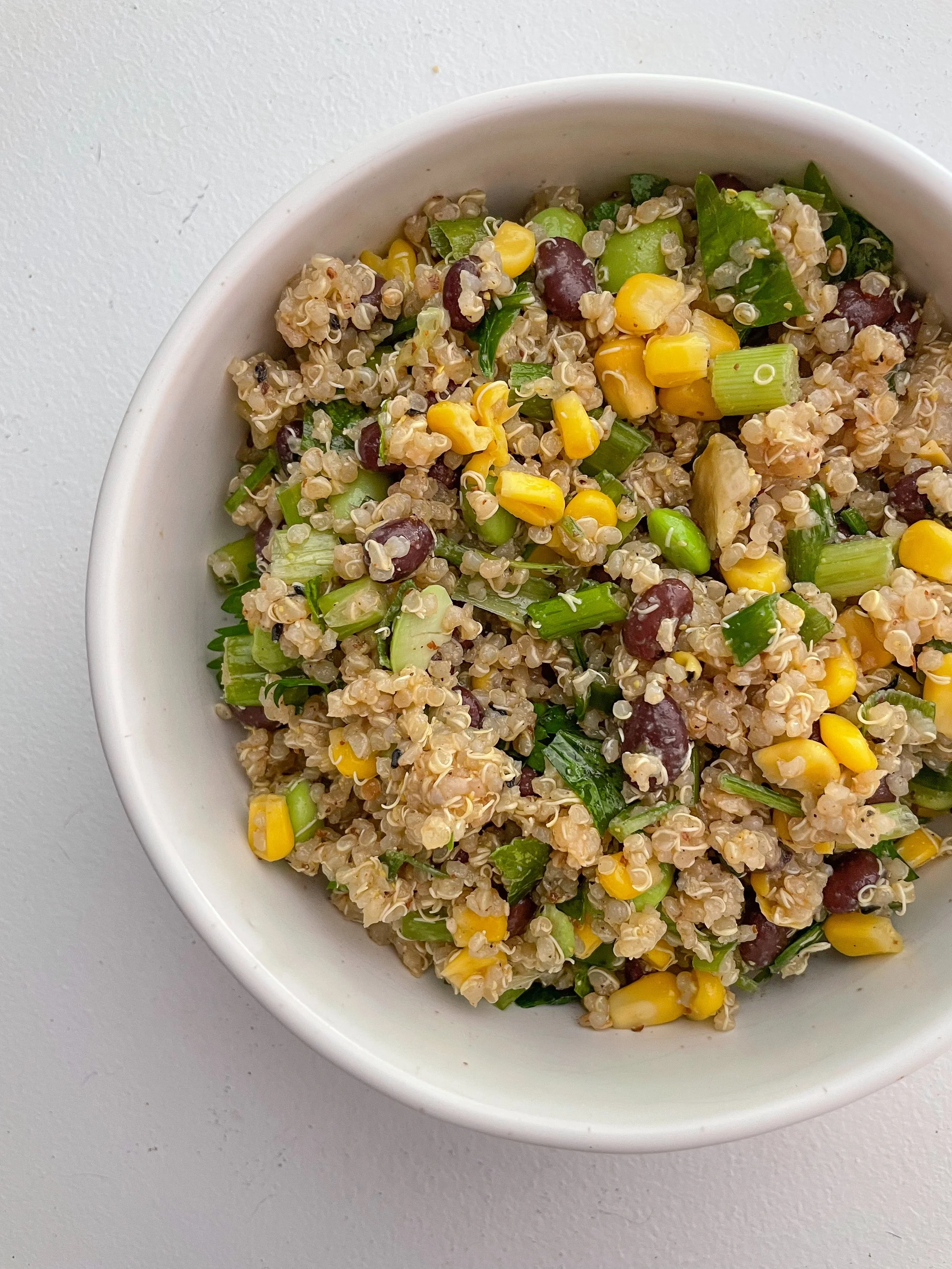Everything You Need to Know About H. pylori
photo by pauline at folk fotos
Helicobacter pylori is a gram-negative bacterium which enters your body and lives in your digestive tract attacking your stomach lining. It can cause inflammation of the stomach lining, ulcers and stomach cancer in a small percentage of people. Doctors attributed ulcers to spicy food and coffee until 1982 when scientists discovered H. pylori. According to the American College of Gastroenterology, Dr. Barry Marshall and Dr. J. Robin Warren were awarded the 2005 Nobel Prize in Medicine for this discovery.
More than 50% of us have H. pylori, but treatment is not required unless symptoms are present or the quantity of DNA present on a GI-MAP is high. If left unsupported, if often continues to proliferate. You can live with H. pylori for years before you start having negative side effects so I like to support it before it gets worse. Research shows H. pylori has been found in the stomach of people all over the world.
Symptoms of H. pylori
ulcers (10-15% of people with H. pylori develop these)
burning pain in your stomach, especially upper abdominal
burping
heartburn/acid reflux
bloating
nausea
vomiting
iron deficiency (one of many causes)
low B12
bloody stool or dark stool
low stomach acid/undigested food
can interfere with amino acid absorption leading to blood sugar imbalances, low mood or hormone symptoms
gas
relying on digestive enzymes
Other less common symptoms: children with GERD, unexplained thyroid imbalances and HPA axis dysregulation
If you have any of these symptoms, I highly recommend a GI-MAP stool test.
The GI-MAP kit is sent to your home to do in the privacy of your own bathroom then it gets shipped back to the lab. I love this specific test since it will tell you if you have H. pylori based on the DNA present in your stool, the specific quantity and if any virulence factors are present. The virulence factor informs me as a practitioner of the pathogenicity factors - is it colonizing the host. Essentially, it’s more severe when virulence factors are present.
Can you support H. pylori without antibiotics?
Yes! I personally recommend lifestyle shifts, specific foods as well as herbs to eradicate this bacteria. If left untreated, your stomach acid will continue to decrease leaving you susceptible to pathogenic overgrowths and low nutrient markers since breaking down your food becomes a challenge. Antibiotics are sometimes a must in life, but they don’t come without side effects: antibiotic resistance. We also know antibiotics wipe out bad bacteria as well as our good bacteria impacting your immunity, mood (depression), stomach pain, diarrhea.
The GI-MAP will also show if you are resistant to any antibiotics, often used to treat H. pylori. This has come back positive for my clients so we knew to take the herbal route.
The to-do list: We have to reduce inflammation, increase SIgA levels (secretory IgA antibodies) for immunity and gut health, ensure detoxification pathways are open and the adrenal glands are supported. Stress and lifestyle are an important component of protocols for H. pylori. Testing is very important with respect to H. pylori.
My top herbs for supporting H. pylori with clients include:
Marshmallow root infusions as it’s a demulcent soothing the irritated and painful mucous membranes. It’s best to make a cold infusion and if you can, get your root ground into a powder. Slippery elm is also great, however I rarely recommend it as it’s endangered.
Mastic gum has been researched for treating H. pylori successfully! It may also protect the lining of the stomach while killing bacteria
Deglycyrrhizinated licorice )DGL) is an amazing affordable herb used to for ulcers, heartburn and helps repair the lining of the intestinal tract. It even helped with eradicating H. pylori with antibiotic-resistant strains. Avoid licorice if you have high blood pressure as it’s contraindicated. To really nerd out check out what DGL increases:
The blood supply to the damaged mucosa
The number of cells producing the mucus that protects the mucous membranes
The amount of mucus the cells produce
The life span of the intestinal cell
In a systematic review berberine helped lower H. pylori as much as 22% with other added herbs
Chamomile may not have as much research as other herbs, but it’s so soothing and also helps get into rest and digest so I often recommend sipping the tea
potential symptoms of H. pylori
Include these foods if you have H. pylori
Green tea is great at fighting and preventing H. pylori and if you follow me on Instagram you know how much I love matcha. Research also shows it helps prevents gastric mucosal inflammation
If you consume manuka honey, you’re in luck as it inhibits H. pylori growth. They found New Zealand honey at 5% helped significantly more than 2.5% - the higher the rating, the more anti-bacterial the honey is
Broccoli sprouts and other sulforaphane rich foods are known to inhibit growth
If garlic feels good for you, include it! Garlic is a superstar as it’s anti-bacterial, anti-microbial and anti-fungal
Lifestyle tip: don’t forgot to address your dental hygiene as H. pylori can thrive here. Ensuring you brush your teeth (when waking up too) and flossing will help.
Reminder to work with a practitioner if you are having any of these symptoms. I’m currently accepting 1:1 clients virtually and testing is included in all packages. Free shipping in North America and I support you throughout your healing journey.
































